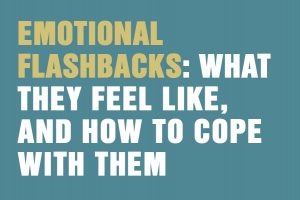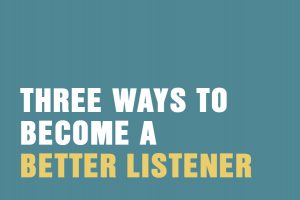What is a gaming addiction?
Gaming addiction has gained attention in the last few years, with some denying its existence while others worry for those who are at risk. But how do you spot someone with a gaming addiction?
In 2018, The World Health Organisation (WHO) recognised ‘Gaming Addiction’ in it’s eleventh edition of the International Classification of Diseases (ICD-11) as “a pattern of persistent or recurrent gaming behaviour, which may be online or offline, manifested by impaired control over gaming, increasing priority given to gaming, to the extent that gaming takes precedence over other life interests and daily activities and continuation or escalation of gaming despite the occurrence of negative consequences.”
Despite this, the Diagnostic Statistical Manual (DSM), which is the standard classification of mental health disorders used by clinicians in the United States, has not yet included gaming disorder in their classification system. “Internet gaming disorder” has been labelled by the DSM as “requiring further study”, meaning that it may be included in future revisions.
There is an argument that gaming addiction is not a disorder in its own right, but is a coping mechanism for underlying issues such as anxiety, depression, or ADHD. However, in the field of addiction, co-morbidity is common and what starts as a coping mechanism may become an addiction and a separate diagnosis.
We are now living in a society where some people make a living from playing video games; whether they are paid as a professional E-sports competitor, competing for prize money of up to $11million, or whether they gain an audience on Youtube or Twitch who watch their live gaming streams, and so on. These professional gamers are likely to be playing video games for a large portion of their day, but are they necessarily addicted?
Risk Factors
It is important to remember that not everyone who plays video games, even those who play a lot, will become addicted – just like not everyone who gambles develops a gambling addiction. Playing video games becomes an addiction when there is a negative impact and they still don’t stop. At The Awareness Centre, we offer addiction counselling services for people who struggle with a variety of compulsions including online gambling.
Certain risk factors have been identified which can show us those who might be more vulnerable to developing an addiction to gaming. For example, researchers in Poland found that living in a city, being male, or having experienced psychological or physical abuse to be risk factors for developing an addiction to gaming (Pawlowska, Potembska, and Szymanska, 2018).
The allure of gaming
Video games provide a form of escapism for those whose cannot bear to face things in their external lives – games provide an environment that is safe and under the control of the gamer. Playing video games also provides feedback on measurable progress as well as instant gratification and reward; things that might be hard to come by in life outside of gaming.
Due to gaming being taken online, players are now able to communicate with people from all over the world. Gaming has now become a truly social activity, however for some people, this is the only social interaction in their entire day. This aspect might be a benefit for those that are already isolated or housebound, but for others gaming becomes so addictive that their real life connections begin to dwindle and fade away.
Video games are designed intentionally, using behavioural psychology, to keep the player hooked. They are just challenging enough that they keep the player interested, but not so challenging that they player gives up – success is always just outside of the players reach. Playing video games increases the amount of dopamine in the brain, however over-exposure to this level of stimulation can cause structural changes to the brain.
Warning Signs
Due to the relative novelty of this diagnosis, there is a lack of research into the demographics of those suffering with gaming addiction. The WHO estimates that 3-4% of those who play video games suffer form a gaming addiction. The UK Addiction Treatment (UKAT) Centres report that over 46 million Brits may be addicted to some form of internet use and that social media and gaming accounts for a large portion of this.
If you are worried that someone you know might have a gaming disorder, the American Psychological Association (APA) have listed nine warning signs to look out for. However, they have stated that someone needs to display at least 5 of these nine signs within a twelve month period. These warning signs are:
- A preoccupation with video games so that gaming or even thinking about gaming becomes the dominant activity in one’s life.
- Withdrawal symptoms when they are not able to game, including irritability, anxiety, boredom, cravings, or sadness.
- Their tolerance levels rising, meaning that they need to spend increasing amounts of time engaged in video games.
- They have unsuccessfully attempted to control their participation in video games.
- They lose interest in previous hobbies.
- They continue to play video games excessively, despite psychosocial problems.
- They have deceived their family, friends, and others regarding their gaming habit.
- The use of video games to escape or relieve a negative mood.
- They have jeopardised or lost a significant relationship, job, educational, or occupational opportunity because of participation in gaming.
Gaming addiction, like gambling addiction, is a compulsive mental health disorder, but the side effects can become physical. It is common for addicted gamers to spend over 10 hours per day playing video games and to become sleep deprived, malnourished, and dehydrated. There have been some more severe cases where sufferers develop agoraphobia. Just as with other addictions, some gaming addicts end up dropping out of university, losing their jobs, getting divorced, and losing their friends and family members due to their gaming addiction.
Looking ahead
Korea is already ahead of much of the world when it comes to the prevalence of gaming addiction, but also the solutions. In South Korea, estimates of young people that are addicted to the internet varies from 10-50%, and neuropsychiatrist Lee Jae Won reports that of these, online gaming accounts for about 90% of cases.
Korea has over 20,000 ‘PC bangs’ – the gaming equivalent of an opium den – where some people stay for up to 14-hours at a time, for $1 per hour. Imagine the inside of an aeroplane, with gaming screens in front of each seat, each being connected to the internet via a trip-hazards worth of ethernet cables.
Outside of these ‘PC bangs’, there is a new problem. Korea hosts 10 different pro-gaming leagues, with most matches being regularly aired on national television. There are at least two networks that show E-sports coverage 24/7. The world of gaming is pervasive.
In 2011, Korea passed a controversial law which prohibits any minor from playing online games between midnight and 6 am. This was done in an attempt to quell the rising possibility that there would be an entire generation lost to the world of gaming. However, as often is the case, many young people found a way around this ban, simply by using an older person’s registered national identification card to log in and play to their heart’s content.
Furthermore, the founder of gamequitters.com noted that minors do not make up the majority of those that are addicted to gaming – it is those that are 18-24 years old, those that have recently moved out of their parents home or just left school and have more freedom to fill their time as they wish.
In the USA, reSTART is one of the biggest names in video game addiction treatment, with four rehabilitation locations around Washington state. They offer technology detox programs lasting anywhere between 8 weeks and 24 months.
What are the treatment options?
Due to the youth of this diagnosis, there are not yet any tried and tested treatment programs for gaming addiction, but due to the similarities with other disorders such as gambling addiction and obsessive compulsive disorder, clinicians have been able to draw together various treatment options.
Gamequitters.com offers an online peer support community for those suffering with a gaming addiction as well as an online programme for gamers and for their families. This is a self-help and peer support resource only and it is suggested that addicts seek professional support as well.
Professional support might come in various forms, including psychoeducation, cognitive behavioural therapy, intrapersonal therapy, interpersonal therapy, and family therapy.
Psychoeducation involves teaching the sufferer about the diagnosis itself and what it entails, e.g. the nature of addiction, cravings, withdrawal, tolerance, and the effects of gaming on their health. Cognitive Behavioural Therapy would address the cravings, irrational thoughts, and developing new coping skills.
Within the intrapersonal therapy, the clinician and gamer would explore identity, build self-esteem, and enhance emotional intelligence – for example they would be looking at other ways of coping with negative emotions other than escaping into the world of online games.
Interpersonal therapy would explore and develop communication skills and social networks with the individual, whereas family therapy would involve other members of the family in getting to the crux of the gaming addiction.
Even though gaming addiction is not as widespread as some scaremongerors would have us believe, we should all be aware of the amount of time we, and our loved ones, spend playing games, and the effect that they have on our mood, participation in other activities, mental and physical health, and on our relationships with others.
If you, or someone close to you, feels they would like support with issues around food then therapy could be an option. Sessions are available seven days a week at our centres in Clapham and Tooting. Our Front of House team can support you in finding the right therapist for you. Just call 020 8673 4545 or email [email protected] for a confidential appointment.





